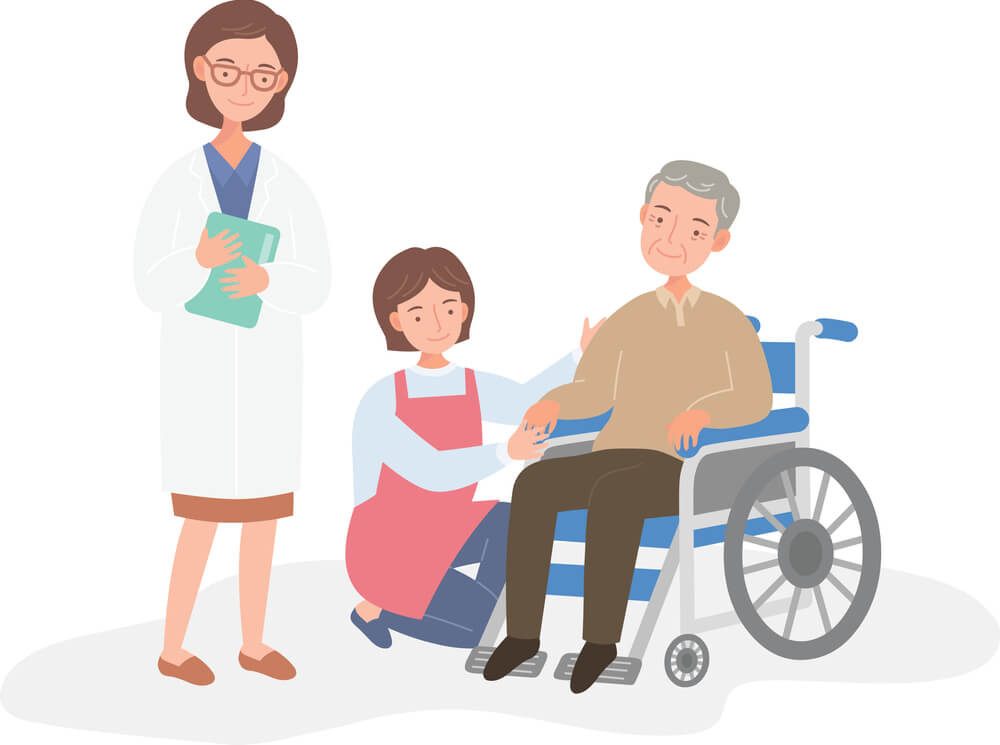

How to Protect Yourself from Caregiver Burnout?
By: Raj, Sonali
Published On: March 16, 2022
Who are caregivers? What work do they do? Many of you may be familiar with the term but what does it really mean? A caregiver is a person who helps and cares for another person suffering from a chronic illness, physical disability, or old age; basically, someone who cannot cover their day-to-day activities on their own. The caregiver can be a family member or someone who has a personal emotional relationship with an individual who needs help or a paid helper.. Unpaid assistance can come from family members, friends, and neighbours and includes:
Buying groceries.
Cooking food.
Doing laundry work.
Providing regular medication.
Helping hands to perform daily exercise.
Managing medical emergency needs.
In India, the population of older people in the age group 60 and more was 138 million in 2021, and by 2031 is predicted to rise to 56 million. As the elderly population increases, more caregivers will be needed to help them. Caregivers in India are mostly family members or friends, usually owing to lack of affordability of paid assistance. . Sometimes, it becomes difficult for the caregiver to manage their physical and mental health while caring for their loved ones, leading to caregiver burnout or fatigue. To overcome the future threats of caregiver burnout, we will go through what caregiver burnout is, its symptoms and ways to overcome it.

What is Caregiver Burnout?
Caregiver burnout is the situation where the caregiver faces physical, emotional, and mental stress while caring for the other person. Caregiving is a long-term activity and results in severe health strain for the caregiver. The caregiver starts losing interest and cannot provide proper care to the ailing or older person.
Causes of Caregiver Burnout:
Caregiver Starts Feeling Isolated- Most of the time, the caregiver gets stuck at home caring for their loved ones and may feel unsafe to leave them alone. Because of it, the caregiver sometimes shortens their time on daily exercise, meeting friends, and activities that they would otherwise love doing. The feeling of isolation then, further contributes to caregiver burnout.

Financial Crunch- Caring for loved ones results in rising medical bills, treatment costs, and other expenses to support them, adding to a financial crunch or debt that further escalates the overall burden on the caregiver.
Workload Management- Sometimes, it becomes difficult for the caregiver to manage their office work and the household stuff of caring for their loved ones. Stress arising from overload of work can lead to tasks piling up and cause a vicious cycle that adds up to caregiver burnout.
Uncertainty About the Future- While caring for the loved ones, the caregiver always feels insecure about whether they are doing the caring work properly or not? When will their loved one’s condition improve? All these doubts regarding future uncertainties can make them feel bombarded with high stressors which might lead to a depressive attitude towards life.
No Personal Space- Their life goals and ambitions take a backseat.
Recommended Read: Crowdfunding for COVID-19 in India
Few Symptoms OfCaregiver Burnout:
Starts isolating from others
Mental fatigue due to stress
Body pain and Sickness
Sleep loss
No personal motive
Emotional instability
A feeling of anxiety or resentful
Starts consuming alcohol or tobacco
Starts feeling exhausted
Changes in body weight
How to Overcome Caregiver Fatigue and Stress?
A few of the ways to overcome caregiver burnout are:
Be Ready to Accept Help from Others- It is okay to ask for help. You could ask your family members and friends to help you share some caregiving responsibilities like cooking food, shopping for groceries, and taking care of your loved ones while you give time for yourself. They could also assist you with financial support to pay for the outstanding expenses on loved ones' medical treatment or drugs. Distributing some duties with others will help reduce caregivers' burnout.
Proper Time Management- As you start giving time to look after your loved one, there is an immediate need to organise your time effectively. Prioritise your time correctly so that you don't miss out on self-care while caring for others. You should try to plan your day in advance to complete all the tasks, which will help you save time for your own health care. Time management will help fulfil your daily responsibility and reduce stressful situations.

Celebrate your Small Efforts- It is essential to keep yourself positive while counting the small actions that make a significant difference in other people's lives. Then, make a list of all the good outcomes of your caregiving support on loved ones and read it whenever you feel low. Even if you feel like appreciates your work, this merit list will help you regain new zeal and energy.








 Information
Information Alert
Alert